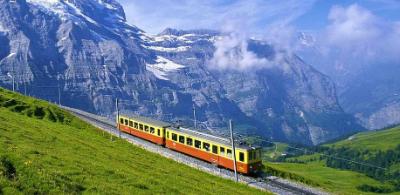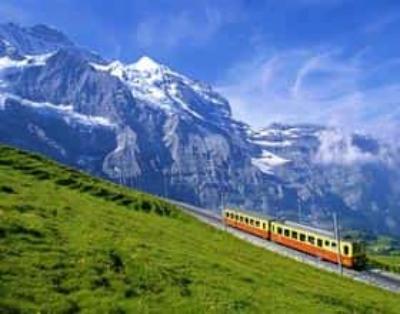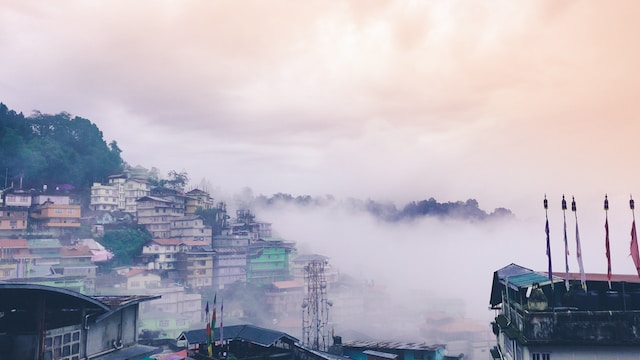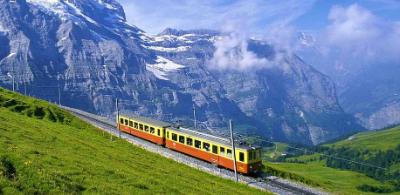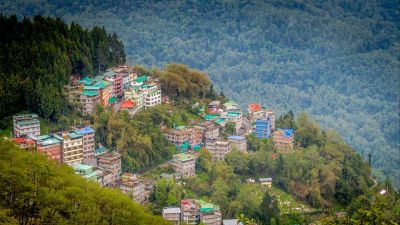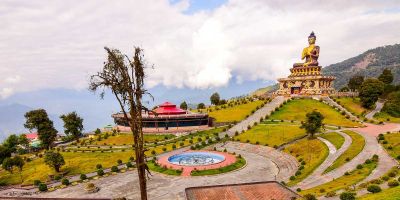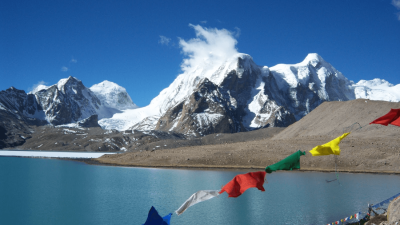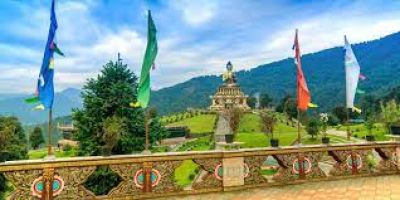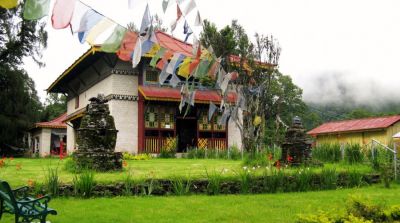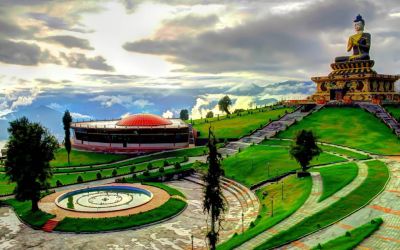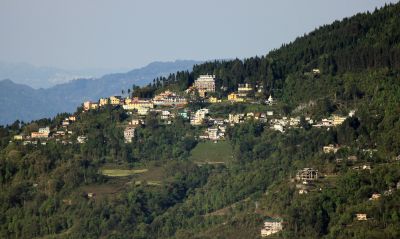The Role of Buddhism in Gangtok’s Society
The Role of Buddhism in Gangtok’s Society
Gangtok, the capital city of the beautiful Indian state of Sikkim, is not only known for its stunning landscapes and vibrant culture but also for its rich Buddhist heritage. With a significant Buddhist population, the city is home to several monasteries and Buddhist institutions. Buddhism plays a crucial role in shaping the society of Gangtok, and it is fascinating to explore how this ancient religion influences the lives of its people.
The Origins of Buddhism in Gangtok
Buddhism has deep roots in Sikkim, with its origins dating back to the 8th century. It was during this time that the Tibetan king, Trisong Detsen, sent a missionary to the region to spread the teachings of Buddha. This marked the beginning of Buddhism in Gangtok and laid the foundation for its subsequent growth and development.
Over the centuries, numerous Buddhist monasteries were established in and around Gangtok. These monasteries, known as gompas, serve as centers for learning and meditation for the monks and provide a spiritual hub for the local community. Today, Gangtok boasts some of the most revered monasteries in the region.
Buddhism in Daily Life
In Gangtok, Buddhism is not just a religion; it is a way of life. The principles of Buddhism are deeply ingrained in the daily lives of the people, guiding their actions and shaping their worldview. For many locals, morning visits to the monasteries are a regular practice, where they offer prayers and seek blessings.
The peaceful and serene ambiance of the monasteries provides solace and comfort to those seeking inner peace. Many Gangtok residents actively participate in meditation and yoga classes, which are often held within the monastic premises. These practices promote mindfulness and help individuals lead a balanced and fulfilling life.
Religious Festivals and Ceremonies
The Buddhist festivals and ceremonies form an integral part of Gangtok’s cultural fabric. The city comes alive during these occasions, with vibrant processions, traditional music, and dance performances. One of the most significant festivals celebrated in Gangtok is Losar, the Tibetan New Year. During Losar, the city is adorned with colorful decorations, and people gather to witness the intricate mask dances and other cultural performances.
Another important event is the Kagyu Monlam Chenmo, also known as the Great Prayer Festival. This week-long festival is a time for monks and devotees to recite prayers and chants for world peace and prosperity. The festival attracts thousands of followers from all over the world, making it a truly awe-inspiring experience.
Social Welfare Initiatives
Buddhism in Gangtok extends beyond religious practices and festivals. The Buddhist community actively engages in social welfare initiatives, with a strong emphasis on compassion and service to others. Monasteries often run schools, healthcare centers, and orphanages, providing education and support to the underprivileged sections of society.
Moreover, Buddhism places great importance on environmental conservation and promoting sustainable living. Gangtok has embraced this ethos and has become a model city for eco-tourism and environmental initiatives. The city boasts a litter-free zone, use of renewable energy sources, and strict regulations on plastic usage.
The Influence of Buddhism on Art and Architecture
Buddhism has left an indelible mark on the art and architecture of Gangtok. The monasteries are architectural wonders, adorned with intricate murals, thangka paintings, and statues of Buddha. These art forms not only depict the religious aspects of Buddhism but also showcase the region's rich cultural heritage.
The influence of Buddhism can also be seen in the local handicrafts and handlooms. Skilled artisans create beautiful artifacts using traditional techniques, preserving age-old crafts that have been passed down through generations.
Conclusion
The role of Buddhism in Gangtok’s society is profound and all-encompassing. From spirituality to social welfare, art to architecture, the influence of Buddhism is omnipresent. Gangtok offers visitors a unique opportunity to immerse themselves in Buddhist culture and experience the profound sense of peace and tranquility that it brings.
If you ever plan a trip to Gangtok, make sure to explore the monasteries, participate in meditation sessions, and be a part of the vibrant Buddhist festivals. The city’s rich Buddhist heritage is sure to leave a lasting impression on your heart and mind.
Don’t forget to share this blog post with your fellow travelers and let them know about the integral role of Buddhism in shaping Gangtok’s society!
Disclaimer : The information provided in this blog is for general informational purposes only. While we strive to keep the content accurate and updated, TravelSetu assumes no liability for errors or omissions. If you believe any part of this blog infringes your rights or causes concern, please notify us immediately at info[at]travelsetu[dot]com so that appropriate action can be taken.





